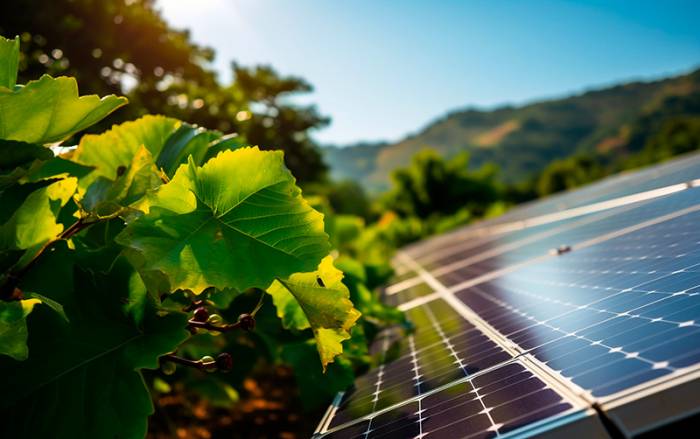French Vineyards Cut Water Use by Up to 60% With Agrivoltaic Technology Amid Record Drought
Solar panel systems shield grapes from heat, conserve water, and stabilize yields as climate change threatens southern France’s wine industry.
2025-11-26

In the south of France, where drought and record temperatures have become a persistent threat to agriculture, new data from the 2025 grape harvest shows that agrivoltaics is making a significant impact on water conservation in vineyards. Sun’Agri, a French company specializing in climate technology, released results this week demonstrating that vineyards protected by their agrivoltaic systems used up to 60 percent less water compared to traditional plots. The findings come at a time when the effects of droughts and heatwaves on French wine production have tripled over the past fifty years.
Agrivoltaics involves installing adjustable solar panels above crops. These panels provide shade and reduce evaporation, while also generating renewable energy. According to Sun’Agri, the technology not only helps save water but also supports stable yields despite challenging weather conditions. In 2025, vineyards using agrivoltaic systems in the southern region of France saw an average water savings of 41 percent, with some sites reaching as high as 60 percent. The system also helped maintain lower temperatures under the vines—up to two degrees Celsius cooler—offering protection against both heat and late spring frosts.
The company reported that Cinsault grapes achieved 99 percent of their expected yield under agrivoltaic panels, while Sauvignon grapes reached 28 percent. Across all varieties, there was an average reduction in plant mortality of 15 percent over the year. These results build on last year’s data, which showed a 30 percent increase in yields for certain grape varieties using the same technology.
However, Sun’Agri noted that solar tracking—the process of moving panels to follow the sun—can sometimes reduce yields if not managed carefully. In some cases, this led to yield losses of up to 30 percent for certain grape varieties, highlighting the need for precise agronomic management alongside technological solutions.
Cécile Magherini, CEO of Sun’Agri, emphasized the urgency of finding new ways to protect French vineyards as water scarcity becomes more severe. She pointed out that August 2025 was the driest month in Europe and around the Mediterranean since 2012, according to data from the Copernicus Observatory. Magherini said that ensuring access to water is now a critical issue for winegrowers and for French agriculture as a whole.
The adoption of agrivoltaic systems is seen as one way to help safeguard both food security and energy resilience in regions facing climate stress. By combining crop protection with renewable energy production, these systems offer a potential path forward for vineyards struggling with unpredictable weather and dwindling water supplies. As climate challenges intensify across southern Europe, more growers are expected to consider such innovations to secure their harvests and livelihoods.
Founded in 2007, Vinetur® is a registered trademark of VGSC S.L. with a long history in the wine industry.
VGSC, S.L. with VAT number B70255591 is a spanish company legally registered in the Commercial Register of the city of Santiago de Compostela, with registration number: Bulletin 181, Reference 356049 in Volume 13, Page 107, Section 6, Sheet 45028, Entry 2.
Email: [email protected]
Headquarters and offices located in Vilagarcia de Arousa, Spain.